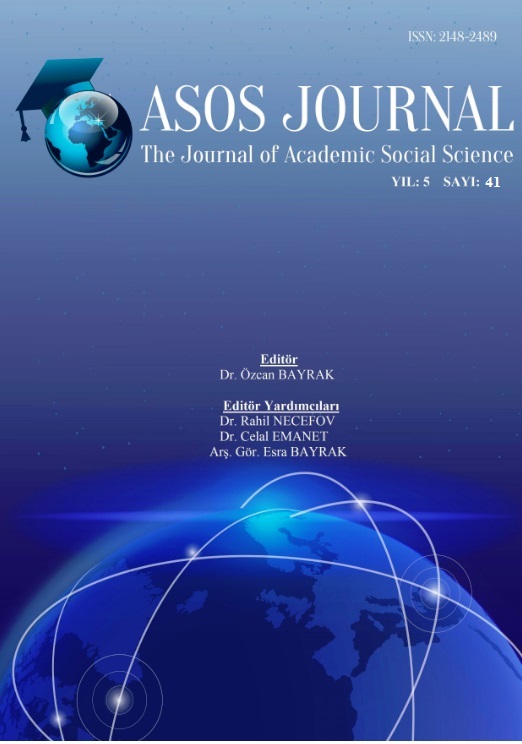DİN, AHLÂK VE DEĞERLER ALANISEÇMELİ DERSLERİNİNVELİLER TARAFINDAN SEÇİLME NEDENLERİ (Antalya, Burdur ve Isparta Örneği)
Author :
Abstract
Dünyaya diğer varlıklardan farklı olarak hiçbir şey bilmez olarak gelen insan, tüm bireysel ihtiyaçlarını nasıl, ne şekilde ve hangi yöntemlerle karşılayacağıyla ilgili hususları dünyada öğrenir. Bu durum hem maddî hem manevî ihtiyaçların karşılanmasında da aynı şekildedir. Söz konusu ihtiyaçların nasıl, ne şekilde ve hangi bilgilerle karşılanacağı son derece önemlidir. Geleceğe hazırlanan gençlerimiz manevî ihtiyaçlarını kısmen DKAB dersleri vasıtasıyla karşılamaktadırlar. Ancak DKAB derslerinin bu ihtiyacı karşılamadığı görülmesi üzerine seçmeli dersler yoluyla takviye edilmesi arzu edilmiştir. Hem velilerin hem de çocuklarının istekleri dikkate alarak DKAB ders müfredatı içerisinde yer almayan ve ayrıntılarıyla bilinmesine ihtiyaç duyulan konuların öğretilebileceği seçmeli dersler konulmuştur. Öğrenci velileri din, ahlâk ve değerler alanı seçmeli derslerin ortaöğretim müfredat programına konulması olumlu karşılanmıştır. Veliler tarafından Din, Ahlâk ve Değerler alanıyla ilgili derslerin seçilmesiyle çocukların daha sağlıklı dinî bilgiye sahip olmaları beklenmektedir. Velilere göre öğrenciler, sahip oldukları sağlıklı bilgilerle öğrenciler geleceğe hazırlanma ve sorunlarla başa çıkmada daha iyi bir donanıma sahip olmuş olacaklardır.
Keywords
Abstract
Human beings, born without having any world knowledge and different from other creatures, learn all the issues concerning how to satisfy their needs after birth. This situation is the same for both satisfying material and spiritual needs. The way these needs are being satisfied is quite important. Being prepared for the future, our youth satisfy their spiritual needs thanks to Religion and Ethics courses. However, as the insufficiency of these courses for the satisfaction of these needs were realized new selective courses have been considered for reinforcement. By considering both students and parents’ needs, new selective courses have been offered that include the other topics that are not included in Religion and Ethics courses and are found to be necessary for students’ spiritual education. Parents have stated favorable opinions on the integration of new selective courses on religion, moral and values in the curriculum. Parents expect their children to have more reliable knowledge on religion with the help of these new selective courses. Furthermore, according to them children will be better equipped for the future problems and better cope with those problems thanks to this reliable knowledge.





